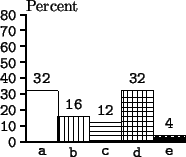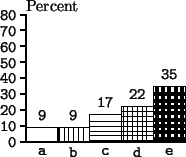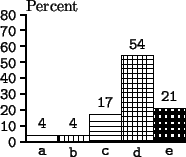|
|
|
|||||||||||||||
|
|
||||||||||||||||
|
Homepage > Assessment > Logic > Question 10 |
||||||||||||||||
|
|
||||||||||||||||
|
|
Philosophy
103: Introduction to Logic
Answer Choices: a. You can't logically conclude that she doesn't want you to come since there could be other reasons why you did not receive an invitation. b. This answer represents only one of many possible explanations, but the reason you can't conclude anything is not necessarily that the invitation was possibly lost. c. You can't conclude that she doesn't want you to come from the fact that you did not receive an invitation. This is the correct answer. d. Answer d is the fallacy of affirming the consequent. e. This answer is false because, by modus tollens, one could conclude if she doesn't want you to come, she won't give you an invitation. Evaluation: The answers to this question are not consistent across the disciplines. The answers given could depend upon different background conditions (i.e., the ceteris paribus conditions) supposed by students in different classes. Since so many students missed the best answer, this question might be best put as a non-decisional form of implication. |
||||||||||||||
|
Send corrections or suggestions to webmaster@philosophy.lander.edu |
||||||||||||||||
|
Arguments | Language | Fallacies | Propositions | Syllogisms | Translation | Symbolic |
||||||||||||||||
|
|
. |
|
||||||||||||||



